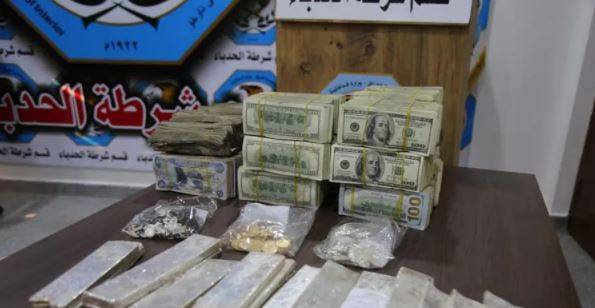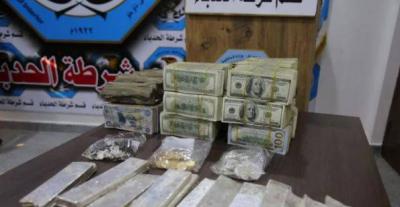With the continuous blows to the head of the terrorist organization "ISIS," the latest being the killing of its leader and the arrest of its financial supervisor, along with the siege of its funding sources, the ongoing spread and attacks of ISIS indicate its ability to continue collecting substantial funds to make a comeback. How does it gather these funds?
Experts in international terrorism explain in their conversation with "Sky News Arabia" that "ISIS" diversifies and renews its funding sources, with the latest methods including passport forgery and the use of cryptocurrencies, in addition to its major source—smuggling—as well as human trafficking, kidnapping, extortion, and taxes, exploiting the chaos in the countries it infiltrates.
An American airstrike in northern Syria killed the organization’s leader, Abu Ibrahim al-Hashimi al-Qurashi, in early February, and Iraqi authorities arrested his financial supervisor, Sami al-Jabouri, in mid-October.
Vladimir Voronkov, the UN Under-Secretary-General for Counter-Terrorism, emphasized the danger of the organization’s return due to its possession of tens of millions of dollars, while acting Executive Director of the Counter-Terrorism Committee, Weixinong Chen, stated that drying up ISIS’s financial resources is a priority for the international community.
### Diverse Sources
The "Wall Street Journal" reported that northeastern Syria has witnessed a recent intensification of ISIS's extortion and smuggling operations. Journalist Shiar Khalil, editor of the London-based "Levant" newspaper, believes that ISIS's attacks on the Ghuwayran prison in al-Hasakah, northeastern Syria, and on Diyala in Iraq indicate attempts for a comeback relying on broad funding sources.
Among these sources are networks for smuggling people across the Syrian-Turkish border into Europe, drug and antiquities smuggling, as well as imposing taxes on the local population. Khalil noted that "ISIS" has resorted to cryptocurrencies while laundering and transferring money through prohibited means.
Researcher Basma Fayad from the European Center for Counter-Terrorism and Intelligence stated: "In addition to kidnapping operations and arms smuggling managed by the 'Abu al-Qaqa' faction, human organ trafficking is a funding source where a fatwa was issued in 2015 permitting the sale of organs from hostages at high prices."
As the organization faces tighter constraints, it has turned to funding tricks, including forged passports with official visas that allowed individuals linked to ISIS to leave Syria and Iraq for Europe, the UK, and the US in search of new financing. The price for selling a fake passport has reached around $15,000, according to Fayad.
### Why Iraq?
Regarding why ISIS gathers most of its funds in Iraq, Khalil argues that Iraq serves as a central gathering point for the organization’s finances due to the political and military chaos there. Iraq is a pivotal meeting point facilitating the organization’s movements between the borders of neighboring countries.
Basma Fayad agrees, adding that ISIS sleeper cells in the deserts of Iraq exploit security gaps between borders to move money and militants. At the end of last month, Iraqi forces arrested four terrorists imposing taxes in Nineveh in the north of the country.
### Strikes Against ISIS
The Center for International Security and Cooperation at Stanford University indicated that the organization’s assets exceeded $2 billion during its occupation of areas in Syria and Iraq, during which it relied on the sale of natural resources and crime. This situation changed following its defeat in Iraq in 2017 when local forces, in cooperation with the international coalition, succeeded in constraining its funding and tightening control over drug and antiquities smuggling from Iraq and Syria, estimating its funds at that time to be around $300 million.
Khalil sees that steps taken to dry up ISIS's funding sources are the key to limiting its spread and weakening its ability to launch attacks and recruit new members, noting that coalition strikes in Mosul destroyed millions of dollars in its possession.




